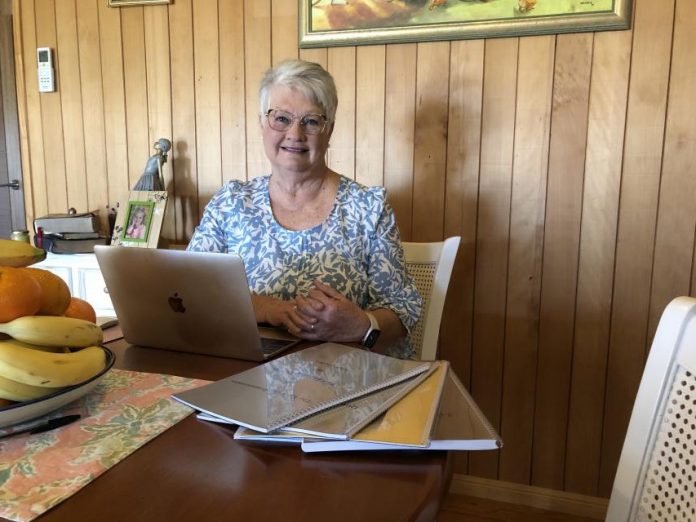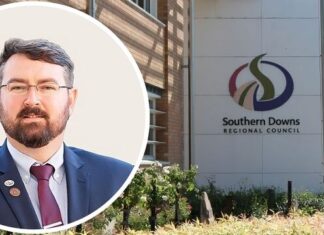While researching my husband’s family who settled in the Warwick area about 1850, I was to find not only a most interesting family but also one of great historical significance and political influence to the early settlement of our state.
Yet it seems that the Morgan men have been all but forgotten despite their influence in both the political life and history of the early settlement of the Darling Downs and of Queensland.
Other men of far less accomplishment, I believe, have been given credit for less effort and dedication than what these men had done to make Queensland and, in particular the Darling Downs, a significant place in our history.
Pioneer – James Morgan
The Morgan men left a heritage more than just a history by their life of service, and often in the face of much opposition.
At least two of the Morgan men were never afraid to take on the strident opposition that came their way in both private and political life. They stood firm in their beliefs and wanted to see the best done so that the new colony would be run more honestly and efficiently than that of the old homeland where James Morgan had come from. I am going to write mainly about these two men with a little background into other family members.
In the words used by Col Stringer who wrote the book ‘Australia’s Christian Heritage’, “History is the dead record of events of what people or nations did, but heritage is a living thing. It is the character, the fibre and the soul of our ancestors. Heritage is something of value that has been passed down from generation to generation!”
A memorial is therefore a record, created to help people remember; to know their heritage and what has been archived through the lives of those who came before them.
We also, through the lives of our ancestors, often find why we are the people we are, the things we like and do, and often our accomplishments in life runs deep in the veins of our genealogy. The way we respond to life challenges often speaks to us of the lives who have gone before. We may ask the question of ourselves and family members, why we may like inventing, writing, creating music or being an artist, a defender of a cause that touches us, or to stand for and with the defenceless. I could ask myself why do I choose to speak out as I have on a number of subjects that have been close to my heart, not knowing I had the resilience to do so. These are only a few examples of how we may reflect the heritage passed on from earlier generations.
Researching the family history, I felt an injustice had been done, and that is something I find hard to accept without doing what I can to correct it.
The Morgan men of the Darling Downs and the memorial of their lives and achievements has partially been lost in history. As best as I can, I would like to shine some light on this darkness as to the great efforts that these men, especially James and Arthur Morgan, through their leadership and the many hardships and sacrifices they made, and how they helped make Queensland and Australia what it is today.
If their story is not told in an open light, it could be totally lost, in some instances due to what we now experience as political correctness. I believe Australia enjoys freedom today because of the efforts and sacrifice of these early settlers, and we are fast losing what they fought for.
The two men I have researched are James Morgan senior and his son, Sir Arthur Morgan.
To my knowledge, both had Anglican Christian beliefs, although James was a Free Mason 33rd degree, and due to their honest upbringing, chose to do the best that life had called upon them to do.
Sir Arthur Morgan was a true Anglican Christian believer and lived his life to a high standard of faith, which shone through in his everyday living. If you are a Morgan descendant of this family line, that of James Morgan from County Longford Ireland, you may feel proud to belong to the memorial and heritage of this Irishman who came to these shores for a better life during a very hard period in history and an even harder beginning in the new Colony.
In the following weeks you will discover I am using the actual articles from newspapers and periodicals of their day. It is with the assistance of the rich record keeping from past times that I can present a verbatim account of many of the actual events surrounding their lives. We need also to remember that our language style has radically changed over the past 200 years.
I hope to reveal what these men did as there are now very few who know the story. There is hardly a prominent person in Warwick who, when asked about the name Morgan or the memorial in Leslie Park, can give you any account of the Morgan history. Even the Historical Society is unable to give any information on the Morgan men of Warwick from the mid 1800s to early 1900s.
James Morgan, in my opinion, was very astute in owning and running the Warwick Argus newspaper which in time amalgamated with the Examiner and Times in Warwick. This, it appears, was the best means of communicating his and Sir Arthur’s message (along with the other newspapers of the day) to the people. It is now helping me to communicate their story.
James Morgan was born in County Longford Ireland on 29 September 1816. His father (as recorded) was Michael Morgan, an Anglican farmer. His mother sadly was unknown. It has proven to be very difficult to find any records of her. James was educated at a private school in Edgeworthstown County Longford, called Edgeworth School.
Reading articles from a book written by both Richard and Maria Edgeworth called ‘Practical Education’ and another by both Maria and her father Richard Lovell, has bought some clarity as to the reason why James Morgan attended the school, without being able to find more information on the family. Edgeworth was a school which was both a boarding and day school.
Richard Edgeworth wanted every person in Ireland to be literate and educated, which he understood would help bring the lives of people into better circumstances and bring a more fulfilled life for all. He was very humane to his own property tenants, a rarity for that era.
After my research, my conclusion is that James was either a child from a single-parent home, from an orphanage or a child of a very poor family, as the school was dedicated to providing the best education to the poorest of that time. Due to the fact we have not ever been able to find a record of his mother, this fits in with the Edgeworth’s belief that children from all disadvantaged classes, especially the poor, should be given a chance to be educated. I haven’t at any time in researching found mention of his family, only an old school friend. When he was deciding on his future plans for his life he mentioned going to his friends.
James Morgan attended this Edgeworth school. One of Richard’s many sons and a brother to Maria by the name of Lovell Edgeworth ran the school. It opened in 1816 and went to 1833. It was open to all religions. Richard Edgeworth was against any kind of proselytising and allowed all religions to be taught outside of school hours by the parents or carers. In an article written by James himself on education, he mentioned how he liked the free Saturday afternoons where the students would walk around the grounds discussing religion and politics, and for them to share grander thoughts together.
The children were hand picked and had to be of good health and behaviour. Edgeworth school catered for boarders in the school, day students and then children who were boarded throughout the town.
The boarders taken care of in a house in the villages was by women who had the responsibility and care of the child, with the carer being answerable to Mr Edgeworth for their conduct and behaviour. A woman had to see the child in her care was clean and dressed well.
The child had to wear what was called a smock, (uniform) of good quality, made to the choosing of their mother or guardian of the house. Each child was inspected every morning by Mr Lowell Edgeworth himself. He was also a believer in fresh air and exercise every day, along with free thought.
The school became a minor showpiece for distinguished visitors, including Sir Walter Scott and William Wordsworth.
Sadly the school failed ultimately because Lovell Edgeworth, a born teacher, was not an accountant and not at all capable of handling the monetary side of the schools affairs. His sister Maria stepped in, sent him away, and closed the school down.
In all, Richard Edgeworth had three marriages and 22 children.
The school, from what I understand, taught that human improvement came from applying mind and body, allowing free thinking, particularly in politics, with freedom in the choice of religion and expression. The boys were given work experience such as blacksmithing, accounting, farming and, interestingly enough, surveying.
One of Edgeworth’s sons was a surveyor in England and this was an area that Richard Edgeworth was interested in himself and had done work on mapping the ‘Bogg area’ of County Longford.
This could explain why James’s time later in Wales was working as a surveyor. That was to be the profession he chose, but little can be found on this period of his life.
James was also fortunate that during his childhood he had witnessed a time of good prosperity and development of the natural resources in County Longford, which would have helped his vision for colonial life and the early settlements when arriving here in the colony. He also witnessed what the large English landholders had done to destroy his homeland.
Richard devoted himself mainly to the question of national education. He was somewhat fortunate to have found a like-minded soul in the Duke of Bedford, appointed Lord Lieutenant of Ireland in 1806.
As well as being a liberal politician and a keen agriculturalist, he was also interested in art and natural history and was appalled by the state of education in Ireland with conditions for the majority little better than those endured in penal times.
Richard Edgeworth instilled in James a dislike for the English titled landlords of the day, along with the poor tenant relationships that these landlords had.
In James, this built a strong conviction, that motivated him, wherever possible, to do his very best to see that such tyranny was not repeated in this great new Colony that was to become his home and heritage.







